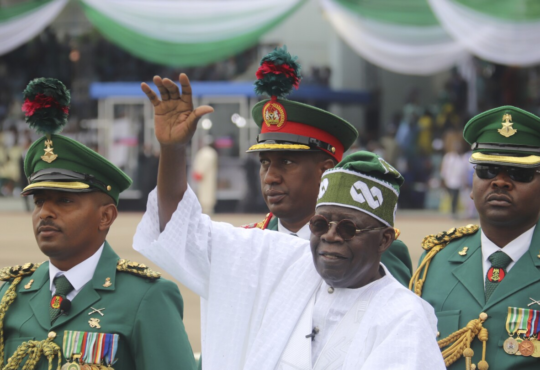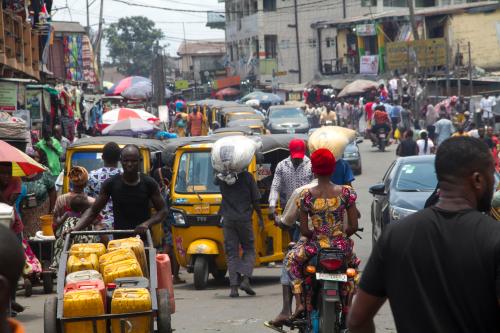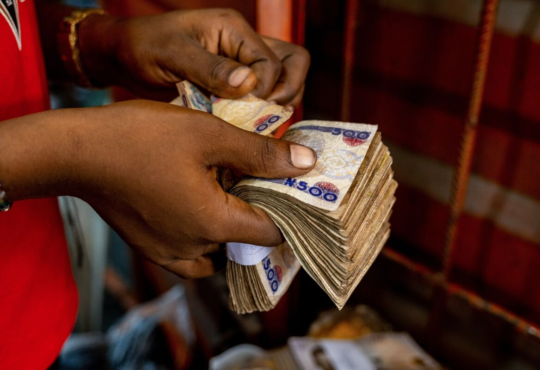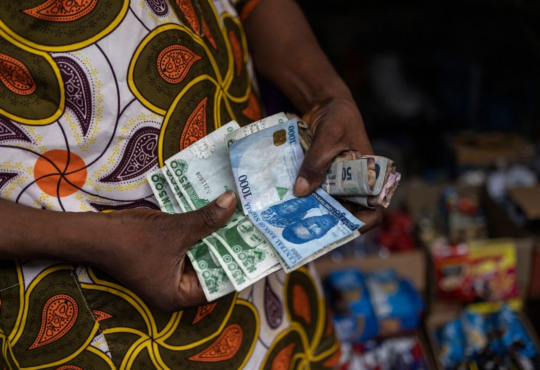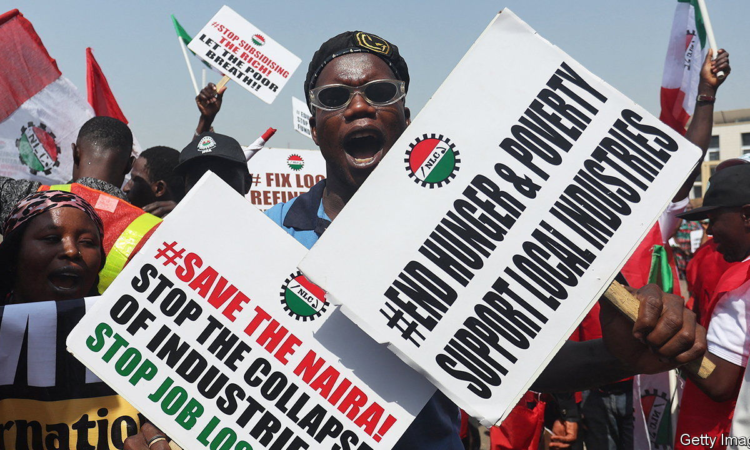
Try our new AI-powered search
beta
On the wealthy peninsula of Victoria Island in Lagos, Nigeria’s commercial capital, no one knows how much their grocery shopping costs. Prices are changing so quickly that shopkeepers have given up on tags altogether. At the till, one might be shocked to discover that a tomato is now 120 naira (8 cents). Last year that could get you four, enough to balance out the hot spice in a pot of jollof rice. That staple dish is made dearer still by the soaring prices of onions and rice, forcing the poorest Nigerians to skip meals. Because Nigeria is dependent on imports, its weaker currency is pushing the annual inflation rate towards a three-decade high at almost 30%.
Last year 23 African currencies hit record lows against the dollar. The naira, which is moving towards being fully floated, has been devalued twice in attempts to close the gap with a parallel market rate. That makes it the second-worst-performing currency in the world, after the Lebanese pound. The decline is also eating into the hard-currency profits of multinational businesses. For example MTN, a South African telecommunications company whose biggest market is Nigeria, this month said its group profit could fall by 60-80% and that its Nigerian unit would make a loss because of the naira’s collapse. The currency volatility is eroding confidence, sparking protests from unions and deterring much-needed investment.
This article appeared in the Middle East & Africa section of the print edition under the headline “Nary a dollar”
Discover stories from this section and more in the list of contents
After the death of the puritanical president, Iran’s reformists hope to win a portion of power
Will this force Binyamin Netanyahu at last to decide to push for a ceasefire?
Some go to undermine the Islamic Republic; others to boost it
After the death of the puritanical president, Iran’s reformists hope to win a portion of power
Will this force Binyamin Netanyahu at last to decide to push for a ceasefire?
Some go to undermine the Islamic Republic; others to boost it
But hardliners in Israel and Hamas may yet scupper it
A clement climate at high altitudes and an entrepreneurial spirit are giving Kenyans a fruitful future
The world’s second-favourite sport is taking off on the fastest-growing continent
Published since September 1843 to take part in “a severe contest between intelligence, which presses forward, and an unworthy, timid ignorance obstructing our progress.”
To enhance your experience and ensure our website runs smoothly, we use cookies and similar technologies.
Copyright © The Economist Newspaper Limited 2024. All rights reserved.


